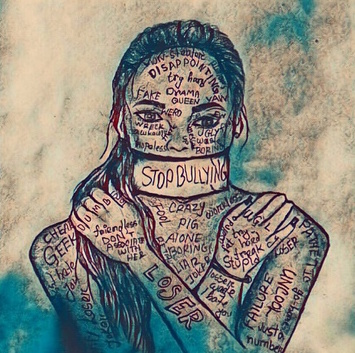It’s tough out there!
Aggressive behaviour is plentiful. Just watch any nature programme between preys and predators. One creature seeks to dominate another. And paradoxically, this is part of the harmony of nature. But I question whether these creatures can be said to be ‘bullying’ one another, as their actions are purely instinctive. I think true bullying is something else.
The cruel heart of bullying
Sure, the perfectionist or narcissist boss may inadvertently make life hard for their workers by demanding impossibly high standards and their utter focus on their own needs could feel like being bullied. But these people might not intend to inflict pain on you. Maybe it’s just that their focus on what they want, the job at hand, or themselves simply surmounts any consideration of you at all! Many perfectionists might be mortified to learn of the emotional fallout their rigid realities cause for other people.
But bullying, in its purest form, is intentional. The intention is to inflict pain. The real bully doesn’t just not care whether they cause pain. The real bully likes to cause pain.
Happiness blocked
We all have innate needs, and when those needs are blocked from completion, we suffer. We all share:
- the need to feel safe and secure (physically, emotionally, financially)
- the need to give and receive attention
- the need to heed the mind/body connection
- the need for purpose, goals and meaning
- the need to feel part of a community and contribute to it
- the need for challenge and creativity
- the need for intimacy
- the need for a sense of control over one’s life
- the need for a sense of status.
We can see that all bullying, in all its myriad forms, will in some way or other block these needs. From physical bullying at school to the more insidious forms of social or workplace bullying on and offline, all bullying is a denial or prevention of one, many, or all of these needs. And conversely, any ill-intentioned blocking of the completion of another human being’s emotional or physical needs can be seen as bullying.
It can be useful to clarify specifically which needs the bullying is blocking. For example:
- When people are belittled, their status is undermined.
- When they are shunned or excluded, their need for connection to a group is severed.
- When they are ignored, their fundamental need to exchange attention is discounted.
- When they feel powerless, their need for a sense of control is thwarted.
So, how can we re-assess and respond effectively to our primary needs when they are being blocked through the bullying?
The first thing would be to discern how many of primal basic needs have been or are being blocked through the bullying. What does the bullying prevent? Feeling safe and secure? Feeling valued? Feeling part of the team? This is a really useful way of looking at the effects of the abuse. Next, you could share your experience with other people close to you or people who are going through the same type of abuse. There are many listening and mutual aid groups where you can talk and share, this may make you feel less lonely and make the experience less overwhelming. You could also ask for professional help. Whether you choose a counsellor, a psychologist or a psychotherapist make sure that they have experience in the flied, so that they can guide you towards the best possible way to handle and defeat the bullying you have been going through.
Article adapted from:
https://www.unk.com/blog/3-ways-to-help-your-bullied-clients/
Suggested reading:
Griffin, J., and Tyrrell, I. (2001). Humans Givens: The new approach to emotional health and clear thinking. CPI Group (UK) Ltd: Croydon.



